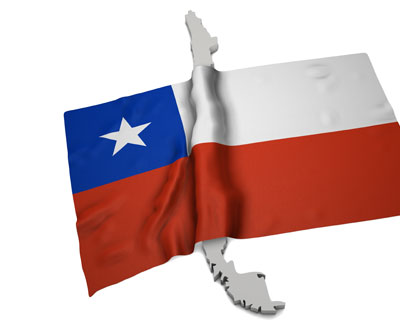Chile’s new mining minister to take the industry by surprise… or not

Despite the issues that have rocked the global mining industry in the last two years, the recently finished Prospectors and Developers Association of Canada (PDAC) conference was once again a great success, attracting around 30,000 sector members.
Someone conspicuously absent, however, was Aurora Williams, Chile’s new mining minister, who takes office on Tuesday. Instead, it was Hernán de Solminihac, the leaving mining minister, who officially inaugurated the Chilean pavilion at PDAC.
The white elephant in the inauguration room was the likely changes ahead for the Chilean mining industry not only under Williams, a business engineer from the country’s north, but more importantly, under president Michelle Bachelet.
Chile’s left-leaning president-in-waiting has pledged to bring in a swift, and ambitious, program of tax hikes to pay for education and health reforms. Many in the mining industry, including Diego Hernández, President and CEO of Antofagasta Minerals, believe Bachelet’s economic plan to raise corporate taxes to 25 percent (from the current 20) and possibly abolish the laws governing foreign investment, could have a devastating effect on mining investment at a time when such investment is already significantly diminished. For example, in the midst of PDAC, Canada’s Fraser Institute released its annual Survey of Mining Companies — which ranks countries as attractive jurisdictions for investment — placing Chile in the 30th spot for 2013, or seven spots lower than in 2012, when Chile was 23rd on the list.
Analysts, however, say the expected changes won’t come any time soon, as the copper producing nation’s new leader needs first to work on bringing power prices down and revising the concessions system to simplify the creation of new mines, as well as to boost exploration.
Matías Ruiz is with ChileEngineering, the association that represents more than 80 engineering consulting firms in Chile, many of which work in the mining industry. Attending PDAC 2014, Ruiz agreed that if undertaken, sweeping tax and investment reforms would affect not only Chile’s mining industry but Canadian investment in this industry as well.
“Canada accounts for more than 50 percent of foreign investment in Chilean mining,” Ruiz noted. “That is because Chile is a solid, stable country, with very low risks. Still, changing the rules of investment may have an impact. We just don’t know what that impact would be. That debate is going on in Chile, right now, and the mining industry is watching it very closely.”
Lawyer Santiago Montt, President and CEO of the Montt Group, a legal and accounting firm with offices in Chile, Peru and other South American mining countries also cautioned against jumping to conclusions, particularly when it comes to changes to foreign investment legislation.
“That fundamental legislation has been in the books since 1974 and although it has been amended from time to time, no government will risk abolishing it and jeopardizing our foreign investments, and our economy,” Montt said.
“It just would not make any sense.”
Major mega-miners such as BHP Billiton, Anglo American and Glencore Xstrata have operations in Chile.
Copper accounts for 60% of the country’s exports and 15% of its gross domestic product.
The country is home to 30% of the world’s known copper reserves.
Suzanne Soto is the owner of Si! Corporate Communications, a Greater Toronto Area company providing public relations services in both English and Spanish.
{{ commodity.name }}
{{ post.title }}
{{ post.date }}




Comments